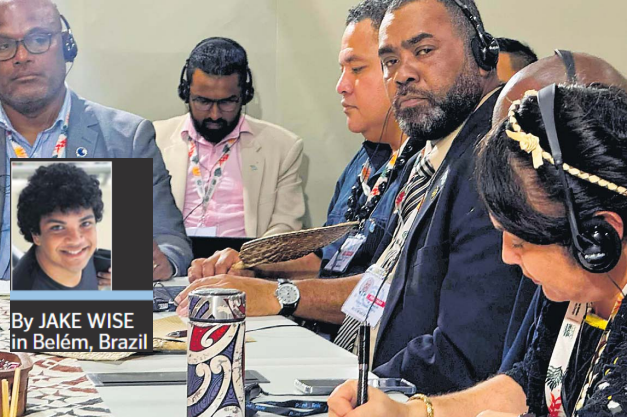FIJI has recorded a major shift in climate finance delivery, with the first community in the country now receiving adaptation funds directly rather than through intermediaries.
This is a move seen as critical for frontline villages facing accelerating climate impacts.
The people of Macuata-i-wai, once a busy island settlement in the Northern Division, became the first recipients of a Community Climate Adaptation Fund (C-CAF) grant signed directly with a local community.
The agreement was presented to Minister for Environment and Climate Change Mosese Bulitavu at the COP30 Climate Mobility Pavilion.
Macuata-i-wai’s decline over the past two decades has been severe.
Twenty households once lived on the island; only two remain. Saltwater intrusion destroyed wells and farmland, and coastal erosion stripped away land, forcing families to relocate in stages.
The new C-CAF grant will support freshwater restoration, stronger housing, and the rebuilding of income-generating activities.
Funding will go straight to the community, allowing them to decide their priorities.
Minister Bulitavu said the signing was “a victory for every community that has been waiting to take charge of its own adaptation story”.
He said “Macuata-i-wai stands as a symbol of what we have been fighting for at COP that climate finance must reach the people first,” adding that the initiative is about “restoring heritage, and belonging.”
The milestone follows years of lobbying by Fiji’s negotiators for direct community access to funding.
Two more communities; Narata Village in Nadroga and Vuniudrovu Village in Naitasiri have been selected for similar support.
For Macuata-i-wai, the grant marks the start of rebuilding what rising seas and erosion have taken from them.



